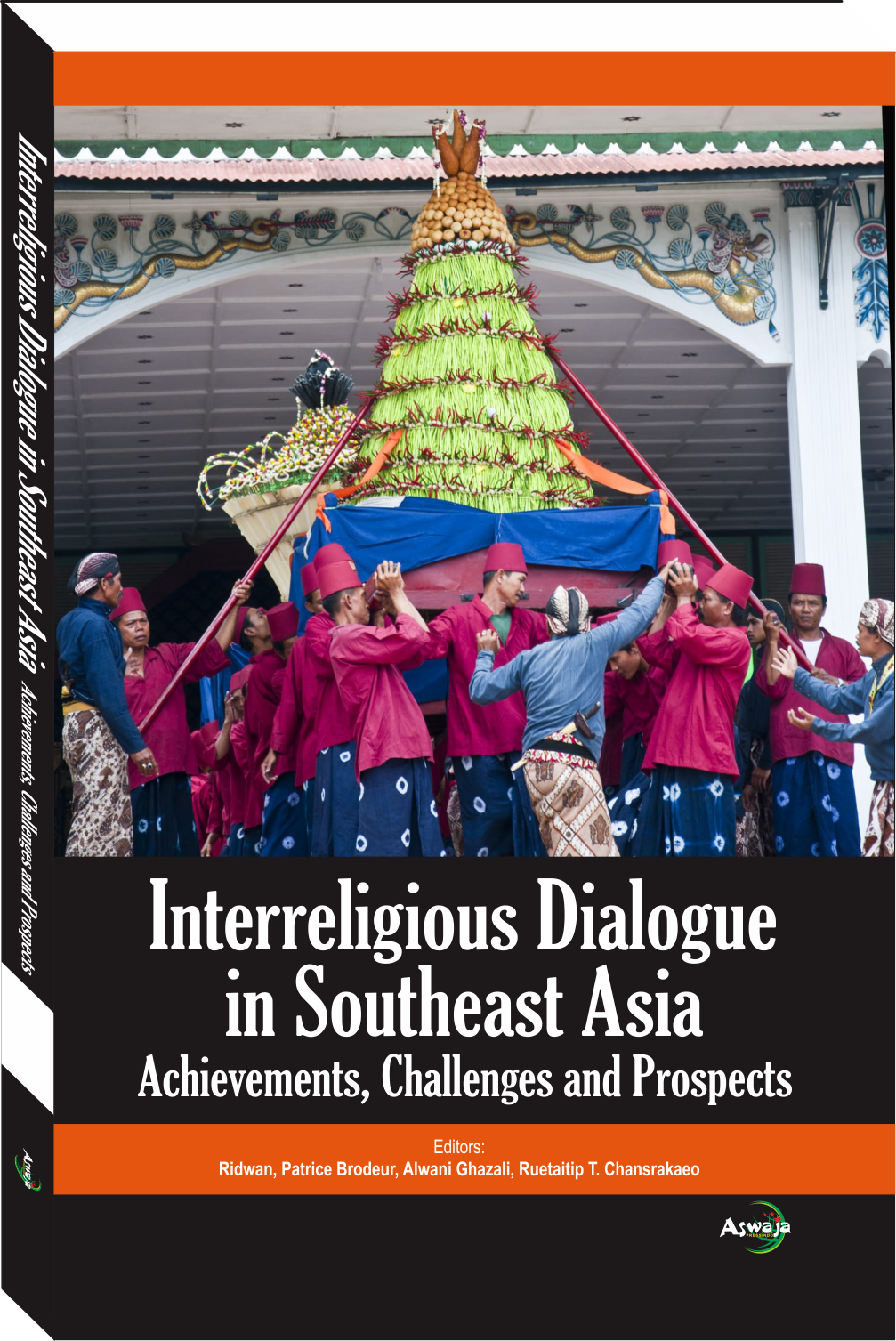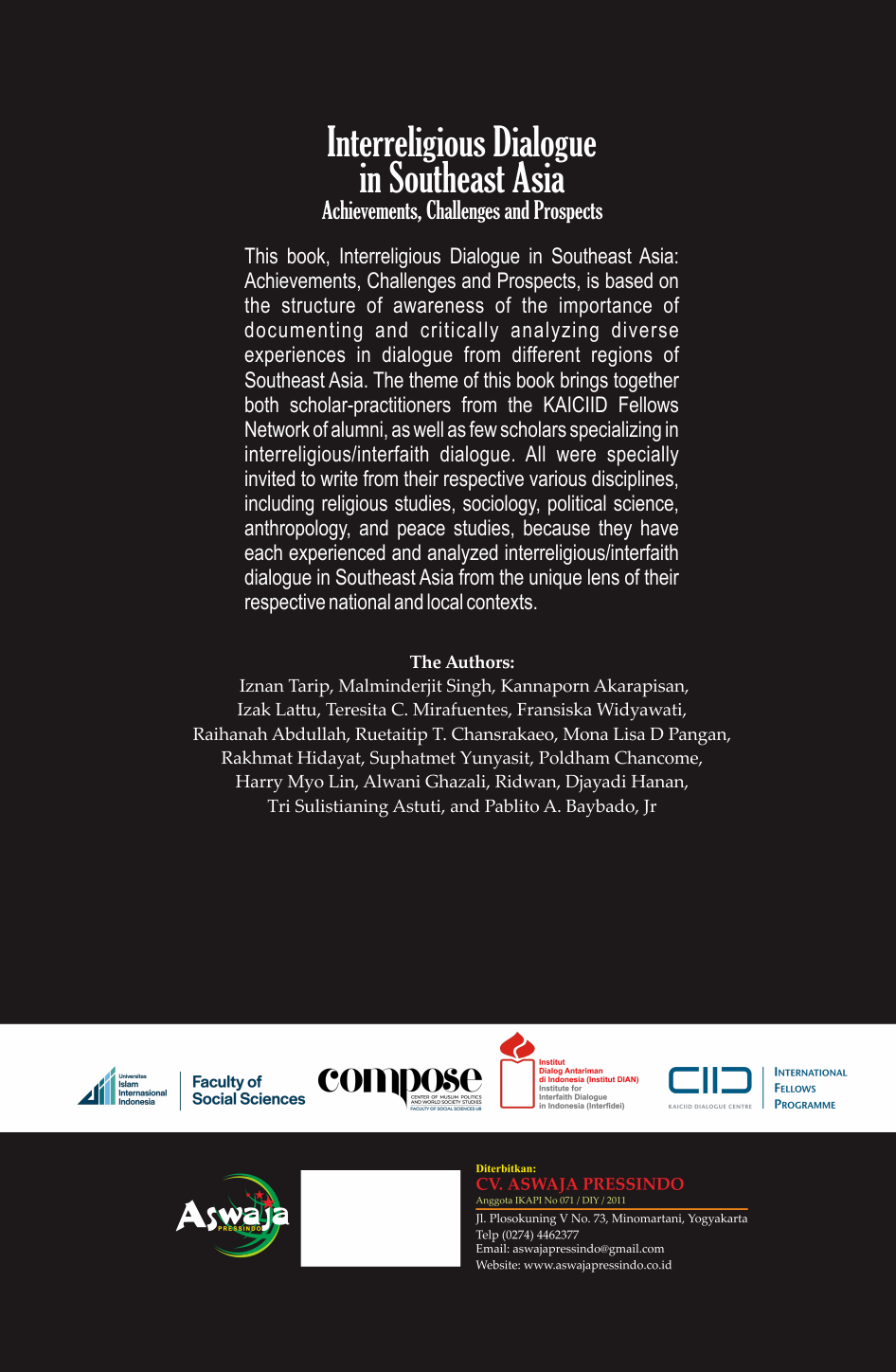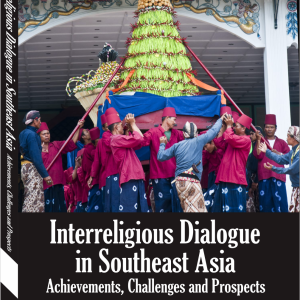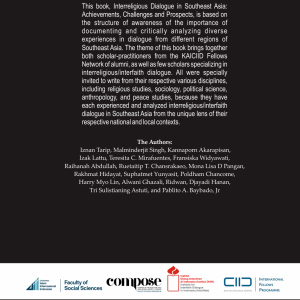Interreligious Dialogue in Southeast Asia
Interreligious Dialogue in Southeast Asia
Achievements, Challenges and Prospects
© 2025 Ridwan, Ph.D (ed.) and Authors
xxii + 388 page; 15,5 x 23 cm
ISBN:
The Authors:
Iznan Tarip, Malminderjit Singh, Kannaporn Akarapisan,
Izak Lattu, Teresita C. Mirafuentes, Fransiska Widyawati, Raihanah Abdullah, Ruetaitip T. Chansrakaeo,
Mona Lisa D Pangan, Rakhmat Hidayat, Suphatmet Yunyasit, Poldham Chancome, Harry Myo Lin, Alwani Ghazali, Ridwan, Djayadi Hanan, Tri Sulistianing Astuti, and Pablito A. Baybado, Jr
Editors: Ridwan, Patrice Brodeur,
Alwani Ghazali, Ruetaitip T. Chansrakaeo
Assistant to Editors: Kamilatul Farikhah
Cover & Lay out: Agung Istiadi
Proofreader: James Stefanuto
Published By:
Aswaja Pressindo
Anggota IKAPI No. 071/DIY/2011
Jl. Plosokuning V No. 73 Minomartani,
Ngaglik, Sleman Yogyakarta
Telp.: (0274) 4462377
e-mail: aswajapressindo@gmail.com
aswajapressindo@yahoo.com
Website: www.aswajapressindo.co.id






















